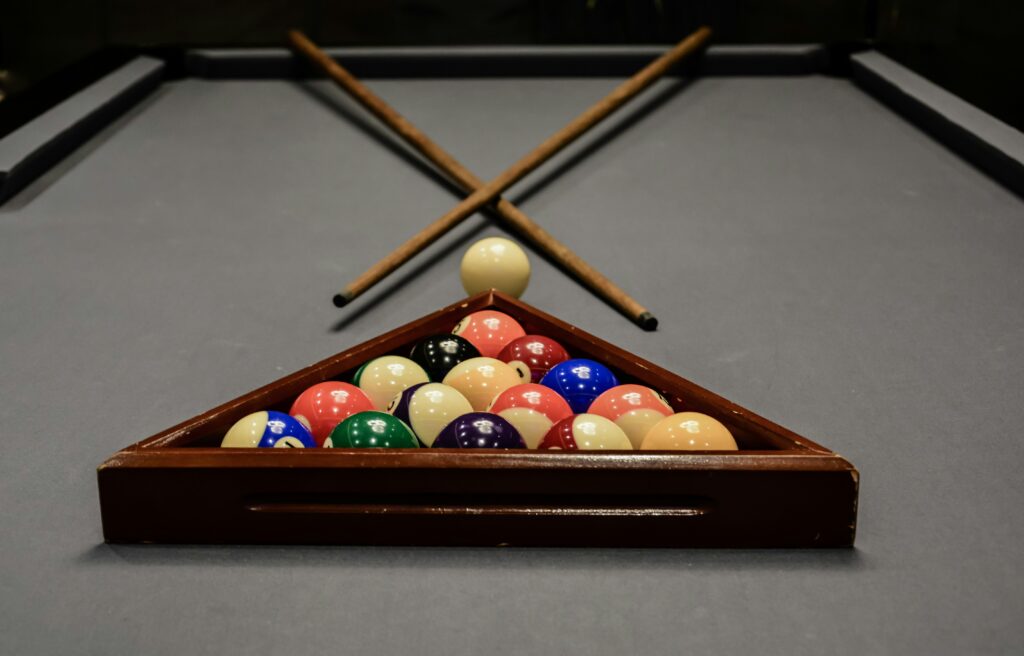
Snooker, a refined and intricate cue sport, offers enthusiasts a unique blend of precision, strategy, and finesse. From the satisfying clack of balls colliding to the strategic maneuvering around the baize-covered table, snooker provides players with a captivating indoor activity that challenges both skill and intellect. In this article, we delve into the world of snooker, exploring its origins, rules, and enduring appeal as an indoor pastime.
A Brief History
Snooker traces its roots to the late 19th century, evolving from a combination of billiards, pyramid pool, and black pool. The game is believed to have been invented by British Army officers stationed in India, who devised a variation of billiards with additional colored balls and specific scoring rules.
The term “snooker” reportedly originated as a derogatory slang term for inexperienced cadets and later came to refer to the game itself. Snooker gained popularity in England and gradually spread to other parts of the world, becoming a beloved pastime and a professional sport with dedicated tournaments and championships.
The Basics of Snooker
Snooker is played on a rectangular table covered with baize cloth, featuring six pockets and a set of 21 balls. The object of the game is to score points by potting balls in a specific sequence, using a cue stick to strike the cue ball and propel it into the colored balls.
The key components of snooker include:
- Cue Ball: The white ball used by players to strike the other balls on the table.
- Object Balls: Fifteen red balls, each worth one point, and six colored balls (yellow, green, brown, blue, pink, and black), each with a specific point value ranging from two to seven points.
- Potting: Potting involves pocketing balls into the table’s pockets using the cue ball. Players aim to pot red balls followed by colored balls in sequence to accumulate points.
- Fouls: Fouls occur when a player commits a rules violation, such as failing to hit the correct ball, potting the cue ball, or touching balls with clothing or accessories. Fouls result in a penalty of points or a free ball for the opponent.
The Appeal of Snooker
Snooker’s enduring appeal lies in its unique combination of skill, strategy, and mental acuity. Unlike other cue sports, snooker requires players to navigate a complex sequence of shots, plan several moves ahead, and anticipate their opponent’s strategies.
Moreover, snooker is a game of precision and control, demanding impeccable cueing technique, delicate touch, and a keen understanding of ball physics. Players must master the art of spin, angle, and pace to position the cue ball for optimal shots and scoring opportunities.
Professional Snooker
Snooker has evolved into a professional sport with a dedicated circuit of tournaments, championships, and professional players. The World Snooker Championship, held annually at the Crucible Theatre in Sheffield, England, is the sport’s most prestigious event, attracting top players from around the world.
Professional snooker players are revered for their skill, composure, and mental fortitude, as they navigate high-pressure situations and fiercely competitive matches. The sport’s rich history and storied rivalries have captivated fans for generations, making it a staple of televised sports coverage and live events.
Conclusion
In conclusion, snooker stands as a testament to the enduring allure of indoor activities that challenge the mind and body. Whether you’re a casual player enjoying a friendly game with friends or a dedicated enthusiast honing your skills on the baize, snooker offers a rich tapestry of competition, camaraderie, and excitement. So cue up, chalk your cue, and immerse yourself in the captivating world of snooker—it’s a cue sport like no other.
